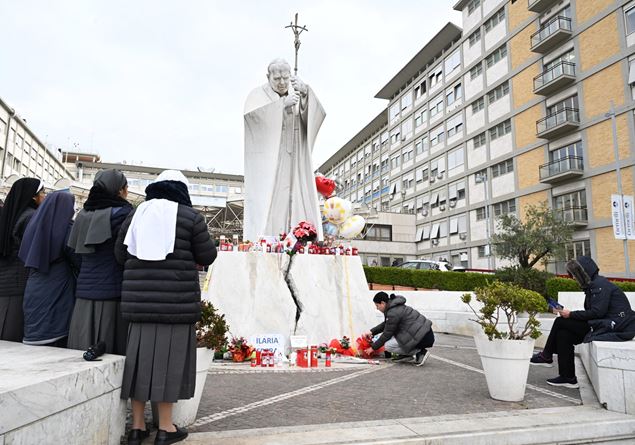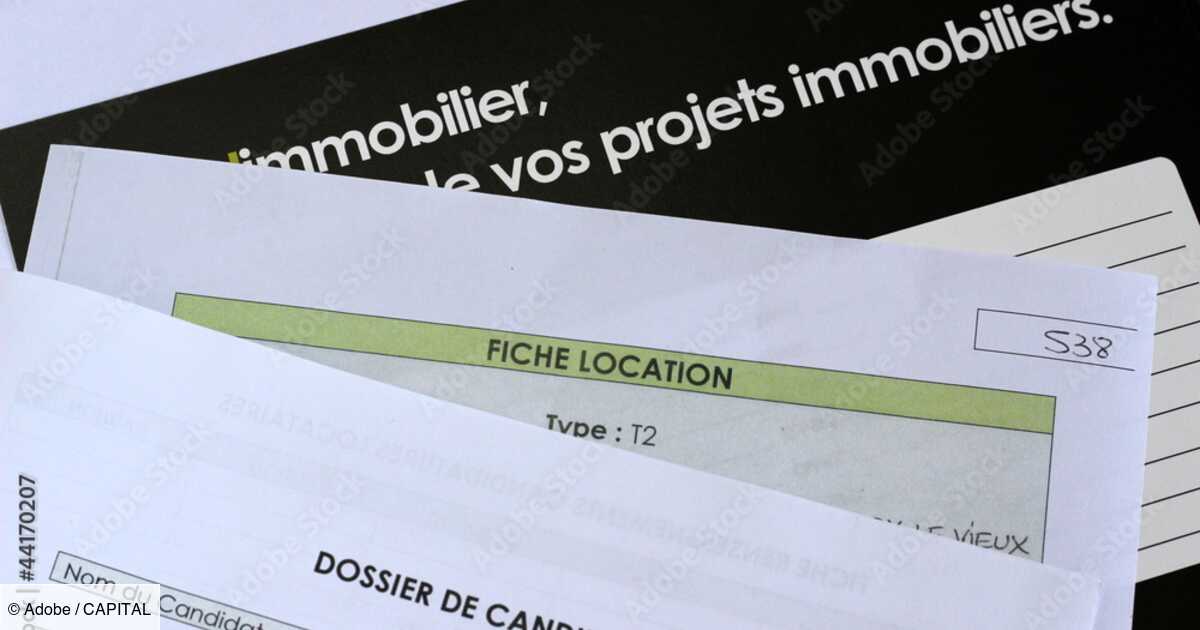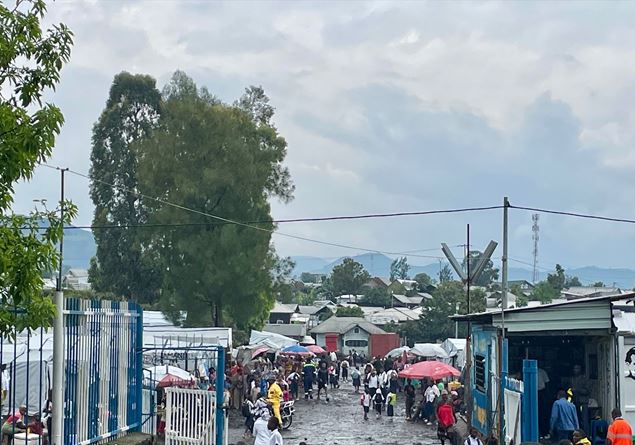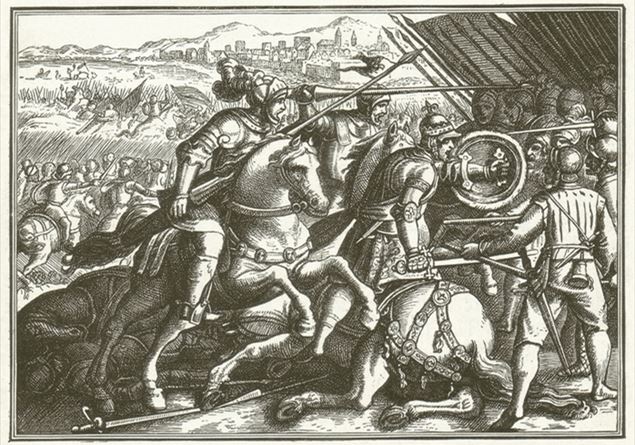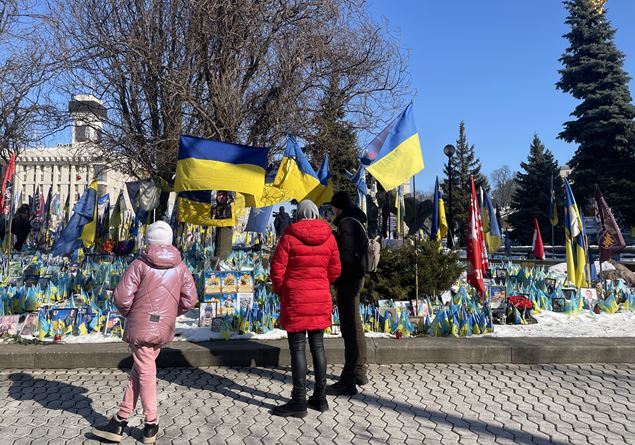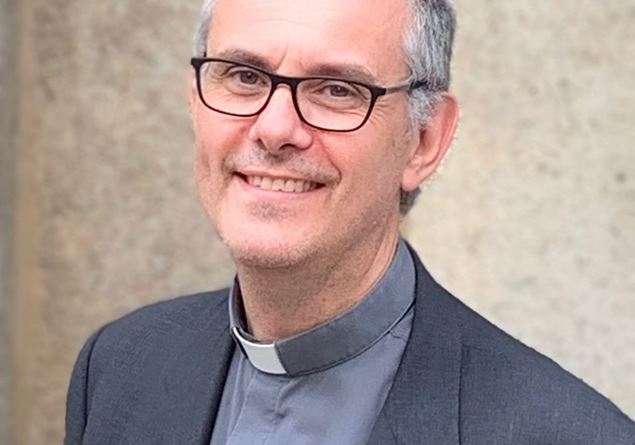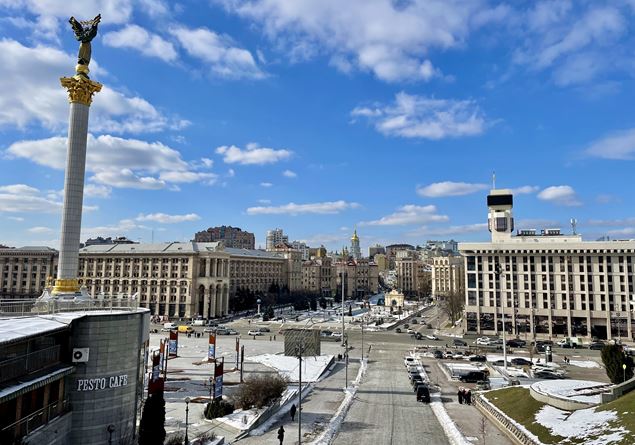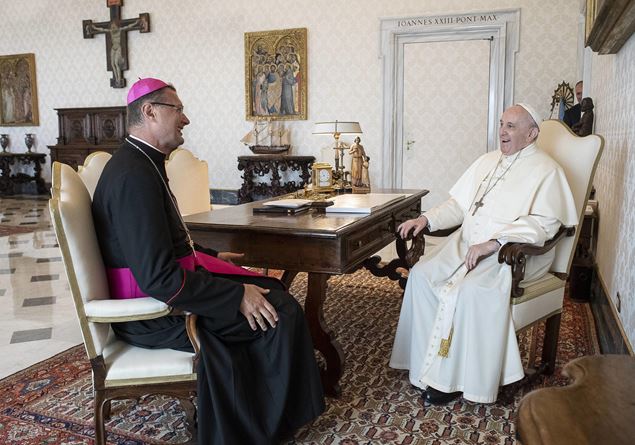Students of the welding laboratory.
At the Don Bosco youth center in Ngangi, on the outskirts of Goma, we are welcomed by the jovial smile of Don Patrick Mwenya, a 32-year-old Salesian from Lumumbashi, who arrived in the capital of North Kivu, a province in the eastern Democratic Republic of Congo, only two months ago, after spending five years in Italy. Seven brothers live here, he explains, under the direction of Fratel Augustin Mupoyi, who like Don Patrick studied in Italy in the past. Around the large Salesian center the view is lost on the immense, crowded settlement of tents and huts where the inhabitants of the villages occupied by the armed rebel group M23, which arrived about 20 km from Goma, beyond the hills, have found refuge. «Everywhere you look around here, you see camps for displaced persons. The land around here belongs to the Salesians, as the displaced people arrived we gave it to them so they could settle here and survive in some way. In the entire settlement of Ngangi there are at least 80 thousand people”, says Don Patrick. An extremely complex, difficult humanitarian situation, to which the Salesians of Ngangi are trying to respond.
«Here we have nursery, primary and high school. There are 2,500 children in primary school alone, aged 6 to 12, divided into two shifts. Those in high school are 500. For primary school children we have activated a canteen where every day we serve a dish of our polenta, a substantial meal, which is often the only one of the whole day for them. Then there are the generally three-year professional training courses in which we have welcomed many young people from camps for displaced persons. We proposed that they come and study here, together with the other students, and learn a trade to keep them busy during the day, take them off the streets and away from the danger of falling into the network of crime and violence.”
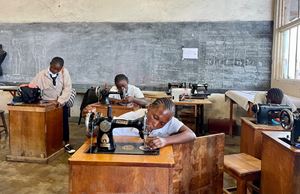
The students of the sewing course.
In total, there are 460 students on the professional courses. To study, you pay a fee, but thanks to a series of donations and aid the Salesians can cover the costs for the displaced children. Don Patrick shows the welding workshop. We then arrive at the large space dedicated to carpentry. At the entrance there is a sign in French: “Precision demands silence”. Work is in full swing here, some students are busy building chairs, desks and furniture under the careful direction of their teachers. «For the displaced children, the living conditions are really hard, many of them have lost their parents in the conflict. Some were welcomed into families in Goma.” For them, learning a trade means finding a way to redemption, being able to look to the future.
In the training laboratory for future bricklayers, a group of students is finishing a practical lesson on how to build a house, brick by brick. «In this course we welcomed a good number of single mothers, both displaced and local residents», the priest explains further. «They themselves have chosen this specialization, probably because they know that it is profitable and that work is easier to find». The problem of very young single mothers is a very widespread problem in the neighbourhood, adds the Salesian. Many of them also study in sewing courses. As a teacher explains, given their condition, the course lasts six months for them. THE
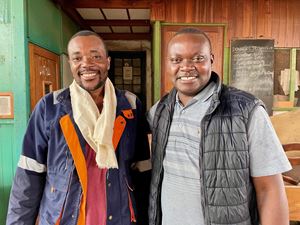
Don Patrick Mwenya, right, with a teacher from the carpentry course.
The Don Bosco Youth Center is not just a school and an oratory: it is a point of reference for the neighborhood, for families, for those who live on the margins, in social and economic hardship. «Here we have a drug dispensary run by a doctor, thanks to the support of Save the Children: free healthcare in this country does not exist, just as basic medicine does not exist. Here you pay for everything and healthcare is very expensive for people. Our students come to receive treatment here and we offer assistance to displaced people in the camps who have nothing and would have no access to healthcare.”
Here, at the Salesian center in Ngangi, assistance to those displaced by the conflict, which resumed at the end of 2022, is also expressed through the orphanage, managed by the nuns, who also take care of the nursery school. «We welcomed some very young children, newborns, whose parents had been killed by the rebels. In some cases the military found them abandoned along the roads, in the villages, and brought them here to us. These little ones, victims of the conflict, will never know who their parents were. Now we are their family, we raise them as if they were our children.” Outside, in a large green space, you can glimpse some kids in a circle intent on chopping wood, together with Brother Augustin. “They too are war orphans who we welcomed when they were children and they live here with us.” The Salesian priest observes them from afar and laughs: «If you ask them who the father is they answer without any hesitation: “It’s Don Patrick”».
(In the photo above, the exit from the Don Bosco Youth Center from which you can immediately access the camp for displaced people)


